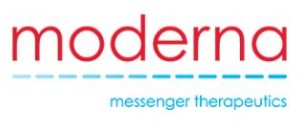- Novartis, Roche find ‘outcome-based’ drug pricing an elusive dream (reuters.com)
Novartis's heart drug Entresto cuts the risk of re-hospitalization might have helped Chief Executive Joe Jimenez realize his ambition of getting insurers to pay more for treatments when they cut overall medical costs…Instead Jimenez and Severin Schwan, CEO of cross-town rival Roche, have been forced to concede that insurance companies…are not yet ready for such "outcome-based" pricing models…A key hurdle…is that electronic medical record systems aren't capable of accurately tracking a drug's role in reducing hospital stays or preventing further trips to the emergency room…This gap has largely stymied a push to change how drugs are priced and reimbursed by insurers and governments, even though both CEOs contend today's pay-per-pill approach can't be sustained…Drugs account for only around 10 percent of U.S. healthcare costs, Jimenez said, with hospital stays, medical personnel and other costs making up the rest. But existing records systems aren't up to the task of putting this data into perspective.
- Germany, U.S. in hot pursuit of ‘messenger’ drug molecules (newsdaily.com)
A molecule that carries the recipe for making drugs inside body cells is exciting scientists and investors alike, attracting hundreds of millions of dollars in a scramble for the next promising area of biotechnology… synthetic messenger RNA, or mRNA technology, a new approach to tackling a range of hard-to-treat diseases... In theory, the promise of mRNA is enormous, ranging from cancer to infectious diseases to heart and kidney disorders, since it could be used to tackle the 80 percent of proteins that are difficult to affect with existing medicines…In effect, mRNA serves as software that can be injected into the body to instruct ribosomes, the “3D-printers” found inside cells, to churn out desired proteins…This is a radically different approach from conventional approaches, where therapeutic proteins are produced outside the human body and…then be inserted back into the human body at great complexity and cost…“The field is moving very rapidly,”...“I predict it will have a significant impact.”...
- FDA sends warning letter to DNA4Life over consumer gene tests (reuters.com)Direct-to-consumer company tests FDA's resolve on gene testing (reuters.com)
Food and Drug Administration sent a warning letter to…gene testing company DNA4Life over its sale of an unapproved direct-to-consumer gene test to predict drug response…the agency said it was unable to identify any FDA clearance for the company's test. The letter follows 23andMe's limited relaunch last month of a series of direct-to-consumer tests after the agency ordered the tests off the market...
- Regenerative Medicine: Could This Be Healthcare’s Saving Grace? (forbes.com)
Regenerative medicine is one of the fastest growing biomedical industries in the world because patients are being cured of diseases that were once incurable…represents a new paradigm in human health because the vast majority of treatments for chronic and life-threatening diseases focus on treating the symptoms, not curing the disease…there are few therapies in use today capable of curing or significantly changing the course of a disease. New regenerative medicine is changing this by engineering, growing, and regenerating tissues and organs using biological processes similar to those normally used in humans…Cell therapy makes up over 60% of the regenerative medicine market…Pharmaceutical companies are building relationships with innovating regenerative medicine companies… Transnational supply-side economics is driving the market; there is low regulation and multiple offerings for numerous conditions, with some being offered to treat life-threatening diseases. Regenerative medicine has the potential to ultimately change the way medicine is practiced throughout the world.
- Rite Aid launches genetic testing for Rx (chaindrugreview.com)Theranos isn’t the only diagnostics company exploiting regulatory loopholes (theverge.com)
Rite Aid Corp. has begun offering Harmonyx Diagnostics genetic testing for medications, making it the nation’s first drug chain to provide the service…Rite Aid said…that the self-administered oral swab test — available in all of its pharmacies…helps patients determine the efficacy of their prescription medication based on their genetic makeup…Patients can buy the test kit at any Rite Aid…In the pharmacy, patients then swab inside their cheek, and then a Rite Aid pharmacist takes the sample and returns it to Harmonyx for processing. Harmonyx provides a state-licensed physician to review each patient’s test, and detailed results are sent to the pharmacist and the treating doctor. The results are received as soon as 24 hours after the laboratory receives the test, according to Rite Aid.
- Precision Medicine Is A Needed Goal That Will Benefit Cancer Patients (forbes.com)
Today an oncologist-policy-maker-and-medical-ethicist reminds us that, in effect, we’re all paying for the sky-high price of new drugs. Which begs the question, if patients – or society – can’t afford the cancer treatments we’ve already got, why search for new ones?...bottom line: Precision medicine will help cancer patients. Already it’s a practice-changer, an oncology life-saver. So far, precision medicine has advanced care, and improved survival…it will take time, years, for physicians (and machines) to learn how best to give precise, targeted cancer treatments in combinations at the least toxic, optimized and effective doses for each patient. Doctors haven’t yet invented most of the “recipes” for good-quality PM, and are still searching for better ingredients (drugs)…Precision Medicine will emerge as a positive industry encompassing science, informatics and health care delivery. It makes no sense to keep science – or precision – out of clinics. Rather, science will, or should, become increasingly relevant to clinical practice…
- Researchers want to turn acid-loving microbes into safe drug-carriers (worldpharmanews.com)
Usually the microbe S. islandicus (Sulfolobus islandicus) is found in hot and acidic volcanic springs, but now the microbe has also found its way to the labs…researchers have for the first time showed that the exotic microbe is capable of delivering drugs to the human body…"One of the major challenges in pharmacy is to find ways to carry and protect drugs on their passage through the stomach. Many drugs may be absorbed through the intestines, so it would be a great help to be able to transport drugs safely through the stomach to the intestines", explains Sara Munk Jensen…Jensen and her colleagues…have managed to use S. islandicus to construct a nano-capsule (liposomes) that can transport drugs safely through the stomach.
- Gene therapies offer dramatic promise but shocking costs (washingtonpost.com)
…gene therapy might soon find itself steeped in a new controversy: soaring drug prices…crucial questions about how much patients will pay directly…industry leaders are…talking about ways to get ahead of potentially massive one-time price tags that could make insurers and patients balk…A gene therapy approved in Europe in 2012 costs close to $1 million, and prices are expected to follow suit in the United States. The therapies in the pipeline are mostly for rare genetic diseases: sickle cell, hemophilia or immune deficiency. Their likely high prices stem from the expected value; unlike drugs that a person takes regularly, gene therapies are designed to be given once and have lasting effects…But everyone involved anticipates the potential backlash against a seven-figure price tag, which is leading to radical proposals. Instead of paying for a treatment all at once, insurers and patients could make installment payments as long as the therapy works…Some researchers are adding up the cost of the traditional treatments that a patient will be able to avoid each year to determine a price that, although high, could lead to savings for the health-care system.
- Boston Children’s, IBM Watson take on rare diseases (healthcareitnews.com)
‘Watson can help us ensure we’ve left no stone unturned in our search to diagnose and cure these rare diseases.’…IBM Watson and Boston Children's Hospital are taking on rare children's diseases that are hard to diagnose and treat. First up is a rare form of kidney disease…Their first project will focus on kidney disease. Watson will analyze the massive volumes of scientific literature and clinical databases on the Watson Health Cloud to match genetic mutations to diseases and help uncover insights that could help clinicians identify treatment options…IBM has been developing Watson's ability to analyze genomic data in collaboration with leading cancer centers around the world. The new project with Boston Children's represents the first time this technology will be applied to help clinicians efficiently identify possible options for rare disease diagnosis and treatment.
- Direct-to-consumer company tests FDA’s resolve on gene testing (reuters.com)
Just as 23andMe has made peace with the...Food and Drug Administration, another direct-to-consumer genetics company is testing the regulatory waters with the launch of a $249 DNA test designed to predict drug response…The test, from tiny startup DNA4Life...comes in the wake of 23andMe's two-year tussle with the FDA over its direct-to-consumer personal DNA testing service, which the FDA ordered off the market in 2013…But the agency has yet to approve direct-to-consumer tests for pharmacogenetics, a field experts believe could be much riskier in the hands of consumers, who might use the information to make decisions about the drugs they are taking…"We would be delighted to have a conversation with the FDA," but added that it is not under the agency's purview. "Of course, the government can do what it likes."…The problem…is that patients, and even doctors, struggle to understand what to do with the results.






